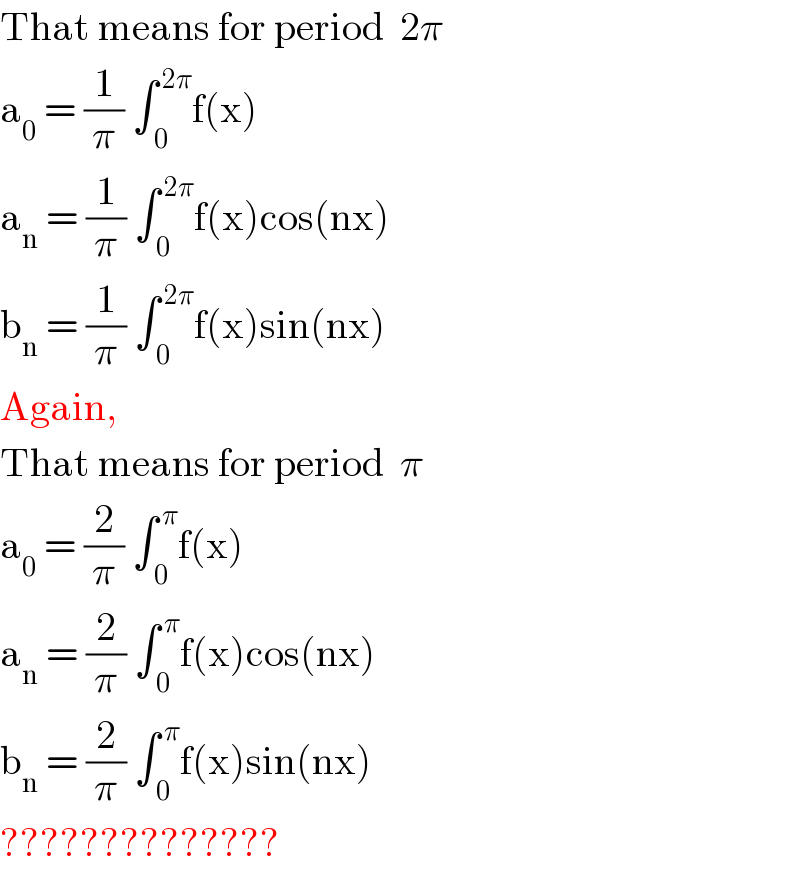Question Number 17625 by tawa tawa last updated on 08/Jul/17

Commented by tawa tawa last updated on 08/Jul/17

Answered by alex041103 last updated on 09/Jul/17

Commented by tawa tawa last updated on 09/Jul/17

Commented by alex041103 last updated on 09/Jul/17
![It′s easy to prove that if f(x)=c+Σ_(n=1) ^∞ [a_n cos(((2πnx)/T)) + b_n sin(((2πnx)/T))] then c=(1/T)∫_0 ^T f(x) dx a_n =(2/T)∫_0 ^T f(x)cos(((2πnx)/T)) dx b_b =(2/T)∫_0 ^T f(x)sin(((2πnx)/T)) dx In the case of f(x)=x we will set the period T=π ⇒c=(π/2) , a_n =0 , b_n =−(1/n) ⇒x∈(0, π), f(x)=(π/2) − Σ_(n=1) ^∞ ((sin(2nx))/n)](https://www.tinkutara.com/question/Q17665.png)
Commented by tawa tawa last updated on 09/Jul/17

Commented by alex041103 last updated on 09/Jul/17
![No. For period of π we have: b_n = (2/π) ∫_( 0) ^( π) f(x)sin(((2π)/π)nx)dx=(2/π)∫_0 ^π f(x)sin(2nx) dx a_n = (2/π) ∫_( 0) ^( π) f(x)cos(((2π)/π)nx) dx=(2/π)∫_0 ^π f(x)cos(2nx) dx a_0 = (2/π) ∫_( 0) ^( π) f(x) dx And in fact if we use T=2π(the period is 2π) we are going to get fourier seriesfor f(x)=x for x∈[0, 2π]](https://www.tinkutara.com/question/Q17674.png)
Commented by tawa tawa last updated on 09/Jul/17

Commented by alex041103 last updated on 10/Jul/17

Commented by alex041103 last updated on 10/Jul/17

Commented by tawa tawa last updated on 10/Jul/17

